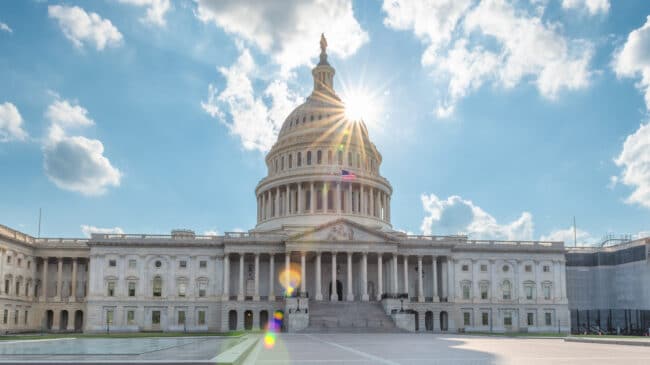In March 2023, Sens. Cory Booker (D-NJ) and Rand Paul (R-KY) reintroduced the Breakthrough Therapies Act, which aims to remove regulatory barriers that limit research and access to potentially life-saving treatments that are heavily restricted by Schedule I of the Controlled Substances Act (CSA). If passed, the bill would modify the current CSA by allowing automatic rescheduling of substances with “breakthrough therapy” designation, such as MDMA and psilocybin, from Schedule I to Schedule II.
In recent years, psychedelics, such as MDMA and psilocybin, have demonstrated exceptional potential in treating an array of mental health conditions, ranging from treatment-resistant suicidal depression and anxiety to post-traumatic stress disorder (PTSD) and substance use disorders. Consequently, the U.S. Food and Drug Administration (FDA) has designated treatments involving both MDMA and psilocybin as “breakthrough therapies,” meaning they exhibit significant improvements beyond any current treatments and have therefore opened an expedited process of clinical trials for these promising substances.
However, even though the FDA can accelerate approval by declaring something a breakthrough therapy, researchers are still impeded when the therapy they are testing involves the use of a substance listed under Schedule I of the Controlled Substances Act. The possession, manufacture, and distribution of Schedule I substances are strictly prohibited in the United States.
The FDA permits researchers to test these substances as investigational new drugs for potential pharmaceutical applications, but the Drug Enforcement Administration (DEA) makes it difficult for researchers to access the underlying substance. The DEA produces a manual of onerous requirements that researchers must comply with to produce and securely store Schedule I substances for research purposes, but the process is significantly simpler for substances listed in lower schedules.
Part of the DEA’s definition of what constitutes a Schedule I substance is that it holds “no currently accepted medical use in treatment in the United States.” However, the FDA’s granting of a “breakthrough therapies” designation for Schedule I substances like MDMA and psilocybin indicates that the agency responsible for determining accepted medical use recognizes the potential of these substances. The two federal agencies are not on the same page.
Recognizing this incongruity, Sens. Booker and Paul co-sponsored the Breakthrough Therapies Act in the U.S. Senate. Reps. Nancy Mace (R-SC) and Madeleine Dean (D-PA) introduced companion legislation in the House of Representatives.
“[C]ertain Schedule I substances such as MDMA and psilocybin could offer major advancements in the treatment of depression, severe post-traumatic stress disorder, and addiction,” Booker said in a prepared statement last March. “This bill will eliminate unreasonably burdensome rules and regulations that delay or prevent researchers from studying these breakthrough mental health treatments and will provide access to these promising therapies for eligible patients who urgently need care.”
Reason Foundation research has detailed that clinical trials examining MDMA and psilocybin as treatments for a variety of mental health disorders reveal remarkable effectiveness. And, although FDA approval of these substances may occur in the near future, many current sufferers of mental illness, including military veterans, have no legal access to these treatments. Some seek therapies in illicit markets, while others travel to countries in Latin America where psychedelic-assisted therapies are legal. Australia also recently became an option for individuals seeking these therapies after that nation recently rescheduled MDMA and psilocybin.
The Breakthrough Therapies Act would resolve many of these problems by at least making these therapies available to Americans on a compassionate use basis while FDA trials are underway and allowing producers to more easily manufacture the underlying substances.
The bill would also enable states to more easily power ahead of the federal government in providing access to psychedelic therapies. Oregon became the first state to authorize a state-regulated market for psilocybin therapy following approval of a ballot initiative in 2020, while Colorado voters legalized possession of small amounts of psychedelic substances in 2022. Dozens of additional state legislatures have considered similar moves since then.
Patients, regulators, and licensees at the state level would all face fewer prospective federal penalties under the Breakthrough Therapies Act because they would no longer be trafficking Schedule I substances for psilocybin or MDMA. This flexibility might better allow states to establish frameworks tailored to their unique needs and demographics, fostering a more responsive and adaptive approach to mental health care.
The bipartisan legislation has not yet secured a hearing in the 117th Congress, but it has attracted widespread support from organizations like the Veteran Mental Health Leadership Coalition and Law Enforcement Action Partnership, reflecting a collective recognition of the act’s potential to remove unnecessary obstacles and advance breakthrough mental health treatments.
“We have seen the evidence that treatments like MDMA- and psilocybin-assisted therapies can work miraculously for otherwise treatment-resistant forms of depression and PTSD,” says Lt. Diane Goldstein (Ret.), executive director of the Law Enforcement Action Partnership. “There are thousands of law enforcement officers around the country who would benefit from these life-saving interventions. Healthier police officers lead to healthier outcomes for our communities. Congress needs to pass the bipartisan Breakthrough Therapies Act.”
In essence, the Breakthrough Therapies Act would align the proclamations of the FDA and DEA regarding the medical usefulness of particular substances and thereby pave the way for more accessible and innovative mental health treatments while also enabling state-level adaptation.


